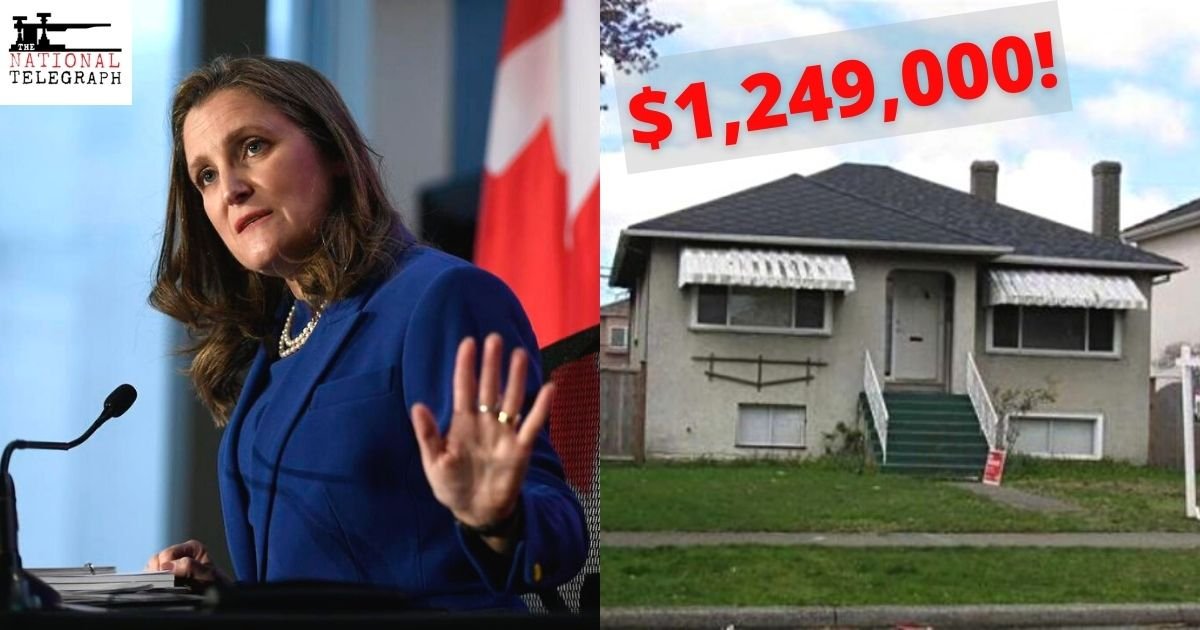Written By Wyatt Claypool, Posted on April 12, 2022

Deputy Prime Minister and Minister of Finance, Chrystia Freeland, speaking yesterday about the Liberals government’s federal budget released late last week focused on plans to try and tackle the issue of unaffordable housing in Canada.
Recently, home prices have risen significantly, but it has been a decades-long issue. Back in the 1960s and 1970s Canadians only spent around 17 percent of their incomes on housing, but now in 2022, the average Canadian household is spending 48.6 percent of their income on housing.
Freeland leading into the Liberals’ new solutions in the budget for the housing crisis said that:
One of the things that I am most concerned about as someone who — it shocks me to say this — is 53 years old, is the intergenerational injustice…We had a better shot at buying a home and starting a family than young people today, and we cannot have a Canada where the rising generation is shut out of the dream of home ownership.
While she is correct about the intergenerational increase in unaffordability within the housing market, Freeland then proceeds to label the symptoms of the housing crisis as the “core problem.”
Freeland pointed to the number of houses being built as the main issue in the housing market, stating, “We cannot have the fastest growing population in the G7 without also having the fastest growing housing stock.”
Yes, the lack of new homes and apartments being built is part of the problem, but this way of framing the issue is like saying the problem with ghettos is the lack of economic activity and not the rampant crime that causes businesses to shut down.
The Liberals are currently planning to spend $10.14 billion on housing over the next 5 years, with $5.8 billion of it going towards the construction of affordable housing and Indigenous housing. Along with the spending the Liberals are creating a new Tax-Free First Home Savings Account (TFFHSA) which can have $8,000 deposited into it per year, to a maximum of $40,000.
The Liberals believe they can double the rate of home development with this plan.
What Freeland and the rest of the Liberal government are missing is what caused developers to not want to increase the housing stock. Their solution to the problem merely builds a smattering of subsidized housing and makes it slightly easier for first-time homebuyers to save a tiny fraction of the average $816,000 price tag for a house in Canada.
The Liberals see the sky-high home prices as a concrete fact, and not the symptom of local policies that make it more expensive and time-consuming to build. By throwing money at the problem the Liberals are just reducing pressure on municipalities and provinces to fix their overly-restrictive zoning laws, environmental regulations, cumbersome review processes, and to scrap rent control laws that remove the incentive to build more rental properties.
Hey there You have done a fantastic job I will certainly digg it and personally recommend to my friends Im…